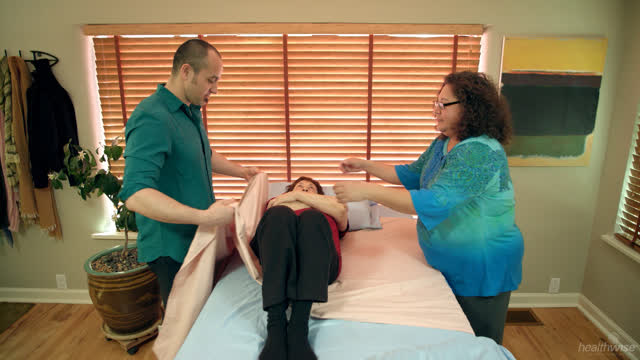Caregiving: How to Help With a Sink Bath
Topic Overview
A sink bath, or basin bath, helps the person you’re caring for to stay clean and fresh in between showers. It can be a good choice when your loved one is too tired for a shower or can’t move around or walk much.
The person may want a sink bath every day or a few times a week. His or her hair may not need to be washed every time.
Some things to think about
- As you help to undress and bathe the person, act relaxed. Bath time can be embarrassing for you and the person you’re caring for. This may be especially true if you are caring for someone of the opposite sex. If you don’t act embarrassed or upset, the person may feel more comfortable.
- Give your loved one as much privacy as possible. If he or she is safe alone for a while and is able to bathe without help, shut the door or close a curtain and step out of the bathroom. But stay close in case he or she asks for help.
- A bath at a sink is often a good choice because it’s easier to do than a full shower. It also may be helpful for people who have dementia, because not all the body is washed. They may not want or be able to do a full shower.
How do you give a sink bath?
Gather your materials
To help give a sink bath, you will need:
- Washcloths or bath sponges.
- Towels.
- A bar of soap or liquid soap.
- Tear-free shampoo or no-rinse shampoo (if the hair needs to be washed).
Get ready for the bath
- Offer the person a robe for comfort and privacy while you set up the supplies. Or the person can undress only the part of the body that is being bathed.
- Set up a shower stool or chair at the sink, or the person can stay in a wheelchair if he or she uses one.
- Use the back of your hand to test the water to make sure it’s not too hot or cold.
- If you will help with bathing, think about whether to wear gloves. You don’t have to, but it might be a good idea if the person has been vomiting or has had diarrhea. And it’s a good idea to wear a mask if you or the person has an illness that can spread, such as a cold or the flu.
Helping with a sink bath
- Put soap on the washcloth or sponge and give it to the person. Let the person wash himself or herself as much as possible. You can help if there are areas the person can’t reach.
- This is just a partial bath, so the person needs to wash only certain parts of the body. It’s fine to wash only the face, underarms, and groin and anal areas—in that order.
- If possible, check the skin for signs of rashes or sores.
- After washing with soap, rinse off the soap with a fresh, damp washcloth.
- Help the person wash his or her hair if that is part of this bath.
- Give the person a towel to dry off, or put one within reach.
- Help the person dress if he or she wants help.
Current as of: April 1, 2019
Author: Healthwise Staff
Medical Review:Kathleen Romito MD – Family Medicine & Gayle E. Stauffer , RN – Registered Nurse
This information does not replace the advice of a doctor. Healthwise, Incorporated, disclaims any warranty or liability for your use of this information. Your use of this information means that you agree to the Terms of Use. Learn how we develop our content.





